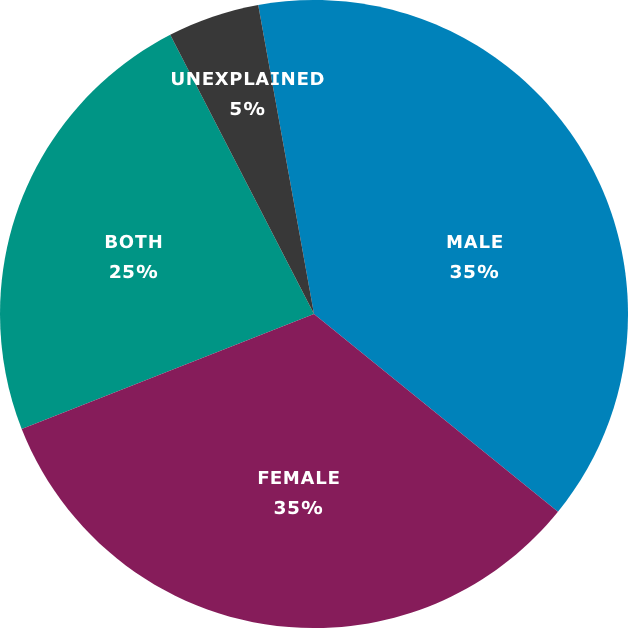Infertility Overview
Infertility is defined as the inability to conceive after 12 months of having sexual intercourse without using any form of birth control. It is estimated that anywhere from 10 to 20% of couples don’t conceive during their first year of trying. Infertility problems are associated about equally between men and women.
It’s a good idea to talk to your doctor if you’ve been having unprotected sex for a year without a pregnancy.
For women 35 or older or individuals who have had fertility problems in the past, 6 months or sooner is the appropriate time to consider seeing a doctor.

Affected by Infertility
Age and Pregnancy
Females are born with a certain number of eggs. With age, female fertility—including the number and quality of the eggs—declines. As a result, a woman over age 35 may face greater challenges getting pregnant and maintaining a pregnancy. She is also at greater risk of having a baby with chromosomal abnormalities such as Down syndrome.
Male fertility in terms of sperm quality and sperm count declines with age as well. The risk for miscarriage also increases as males age.
How can I tell if my eggs are a problem?
Egg quality refers to both the ability of an egg to become successfully fertilized and the ability of a fertilized egg to develop into a healthy baby. While age is a strong indicator of egg quality, your provider will be able to conduct a better assessment of your fertility utilizing certain blood tests and ultrasound exams. A few commonly ordered tests are:
- Follicle-stimulating hormone (FSH)
- Estradiol
- Anti-Müllerian hormone (AMH)
- Ultrasound assessment of the antral follicle count
Depending on the test results, your doctor will recommend the appropriate treatment plan, which may include fertility drugs and in vitro fertilization (IVF) with your own eggs or with donor eggs.
Improving Your Chances for Becoming Pregnant
Lifestyle and Nutrition
Maintaining a healthy lifestyle is always important and can influence one’s ability to get pregnant. If you are trying to conceive, we recommend you do the following:
- Eat a well-balanced diet
- Get regular moderate exercise (at least 30 minutes a day, 3-5 days a week)
- Avoid cigarette smoke, recreational drugs, and excessive alcohol consumption
- Take a standard multivitamin daily; women are recommended to take a multivitamin with 400mcg of folic acid
- Try to manage stress and emotional health
Stress can impact the ability to conceive and maintain a healthy pregnancy. Tell your doctor if you have a history of mental health issues or eating disorders and seek support or counseling if needed.
Regular Intercourse Timed with Ovulation
Heterosexual couples trying to conceive should try to have intercourse every day or every 2 days around ovulation. This is when the ovaries release an egg and the most fertile period of a woman’s menstrual cycle.
Day 1 of the cycle is the first day of a full menstrual flow. Most, but not all, women ovulate on or near day 14 of their menstrual cycle. Using a urine ovulation predictor kit can help identify when you are ovulating.
Ovulation Predictor Kit
Ovulation predictor kits are easy-to-use test kits that help determine when a woman is about to ovulate. About 12 to 14 days before the start of a menstrual cycle, the brain releases luteinizing hormone (LH). One to one and a half days later, LH triggers ovulation. This LH surge can be detected in urine by the ovulation predictor kit. They can be purchased over the counter, without a prescription, at most pharmacies. Some kit brands include Clearblue® Easy, QTEST™, Assured™, and EZ Level (LH).
Begin testing on or around day 10 of your menstrual cycle unless your provider tells you to start on a different day. It is best to test your urine in the morning; however, always follow the directions in the kit you are using.
When the kit indicates ovulation, you should have intercourse on that day and the following two days.
Source: The Art of Conception, Kaiser Permanente, The Permanente Medical Group
